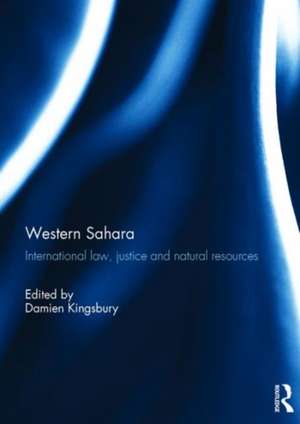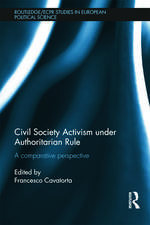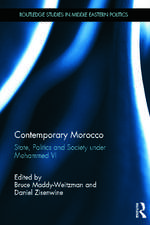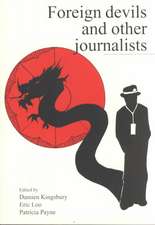Western Sahara: International Law, Justice and Natural Resources
Editat de Damien Kingsburyen Limba Engleză Hardback – 29 mar 2016
| Toate formatele și edițiile | Preț | Express |
|---|---|---|
| Paperback (1) | 441.58 lei 43-57 zile | |
| Taylor & Francis – 12 ian 2018 | 441.58 lei 43-57 zile | |
| Hardback (1) | 999.51 lei 43-57 zile | |
| Taylor & Francis – 29 mar 2016 | 999.51 lei 43-57 zile |
Preț: 999.51 lei
Preț vechi: 1218.90 lei
-18% Nou
Puncte Express: 1499
Preț estimativ în valută:
191.28€ • 198.96$ • 157.91£
191.28€ • 198.96$ • 157.91£
Carte tipărită la comandă
Livrare economică 14-28 aprilie
Preluare comenzi: 021 569.72.76
Specificații
ISBN-13: 9781138958920
ISBN-10: 1138958921
Pagini: 154
Dimensiuni: 174 x 246 x 15 mm
Greutate: 0.43 kg
Ediția:1
Editura: Taylor & Francis
Colecția Routledge
Locul publicării:Oxford, United Kingdom
ISBN-10: 1138958921
Pagini: 154
Dimensiuni: 174 x 246 x 15 mm
Greutate: 0.43 kg
Ediția:1
Editura: Taylor & Francis
Colecția Routledge
Locul publicării:Oxford, United Kingdom
Public țintă
Postgraduate and UndergraduateCuprins
1. The role of resources in the resolution of the Western Sahara issue 2. The taking of the Sahara: the role of natural resources in the continuing occupation of Western Sahara 3. Western Sahara, resources, and international accountability 4. The status of Western Sahara as occupied territory under international humanitarian law and the exploitation of natural resources 5. The hidden cost of phosphate fertilizers: mapping multi-stakeholder supply chain risks and impacts from mine to fork 6.The role of natural resources in the building of an independent Western Sahara 7. Independence by fiat: a way out of the impasse – the self-determination of Western Sahara, with lessons from Timor-Leste 8. Saharawi conflict phosphates and the Australian dinner table
Descriere
As the Spanish left colonized Western Sahara in 1975, Morocco invaded, sparking a war with the Western Saharan Polisario Front. Morocco now controls roughly 70% of the territory, occupying it with roughly 140,000 soldiers. In 1991, Morocco and the Polisario Front agreed to a truce ahead of a referendum on Western Sahara’s future. However, Morocco has since refused to allow the referendum, and has exploited Western Sahara’s non-renewable natural resources. This has highlighted the plight of the Saharawi people, and pushed the Polisario Front back to a position where it is openly canvassing for a return to war. This book was published as a special issue of Global Change, Peace and Security.










